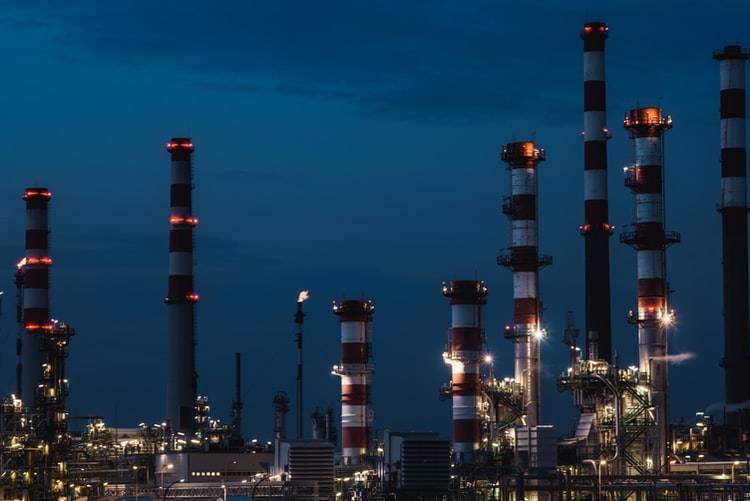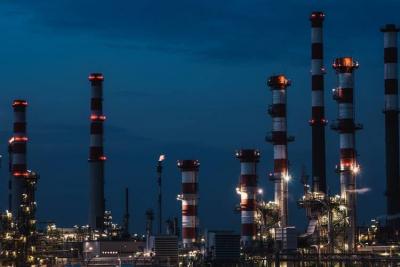Lebanon has officially been informed of the Iraqi Cabinet’s decision to double the quantity of crude oil allocated to Lebanon, increasing it from 500,000 tons to 1 million tons annually. The Iraqi Cabinet voted unanimously to support Lebanon with crude oil, promising that the decision would be implemented as quickly as possible due to Lebanon's pressing need for this support, as it is undergoing unusual circumstances. Lebanese President Michel Aoun thanked the Iraqi officials for the decision to double the crude oil quantity allocated to his country via a tweet posted on the official Twitter account.
In Lebanon and abroad, observers see the proposed deal as a class benefit that secures the continuity of the ruling system and postpones its total collapse when it will be unable to secure essential services like electricity and oil. Especially since the agreement does not represent a sustainable plan but rather a temporary solution that carries political motives more than benefits for citizens.
In the morning, oil expert Anas Hijj tweeted his commentary, stating, "What does Michel Aoun mean by oil? If he means crude oil, there are no refineries in Lebanon, so how will it be processed? And if he means gasoline or diesel, Iraq does not export either." He added, "The only thing left is fuel oil, and that is one of the lowest quality types of fuel oil, which is banned in many countries around the world."
The Lebanese Parliament had approved at the end of March a loan to purchase fuel necessary for electricity generation, representing 500,000 tons of petroleum, or about 3.5 million barrels, equivalent to Iraq's daily oil exports. The agreement also includes "cooperation in hospital management and medical training," in which Lebanese experts and specialized medical teams will participate in managing new institutions and "medical cities" in Iraq, according to what the National News Agency reported in mid-April.
**Ambiguity**
Lebanese oil and gas expert and Director of the Natural Resource Governance Institute, Dr. Lori Haytayan, told Sky News Arabia that the entire agreement is merely a "patch" for the problem that Lebanon faces regarding its oil needs. She added, "Between finding a way to import its oil needs directly, and importing crude oil with certain facilities while then looking for someone to refine it for them, Lebanon is forced to provide medical services to Iraq when it itself needs those services and cannot secure its own medical equipment and personnel which have emigrated, alongside a near collapse of the health sector."
Haytayan questioned, "How can Lebanon provide medical services to Iraq when there are no medicines or hospital beds available for a patient?" She stated, "The agreement is fundamentally unsuitable for both Lebanon and Iraq, and it is shrouded in ambiguity." She further remarked, "There is confusion about what we will receive from Iraq; is it crude oil or fuel? And if crude oil arrives, how will it be refined?"
She added, "The problem with Iraqi fuel is that it contains a sulfur percentage of 4%, while what is used in Lebanon should contain only 1%. If what is imported is crude oil, we cannot use it effectively unless we find a way for Lebanon to refine it, and the refineries in Lebanon are out of operation, thus requiring a method to refine it outside of Lebanon, either in Iraq or through a third party."
Haytayan noted, "There is no distinction basically between fuel oil, crude oil, and gasoline." She addressed the topic of the third party, stating, "There could be an intermediary company, but who is this company? There is a great deal of secrecy and the matter is unclear; we need to see the text of the agreement to understand its purpose, and the rest falls under the category of conjectures."
She emphasized the necessity to know "who the third party that will refine the oil is, how they will benefit from transporting and delivering it, and how they will receive their fees, financially or through a share, amidst the crisis facing Lebanon's medical sector?"
Haytayan concluded by stating, "The Lebanese are always afraid of repeating the scenario of waste and corruption, as happened last year with the Algerian company Sonatrach, which supplies Lebanon with fuel oil, where a third party was involved in the process—ZR Energy—resulting in the 'adulterated fuel' scandal, which is still subject to legal disputes between the Lebanese state and Sonatrach." It is noteworthy that concerns have been raised about the potential benefit of both Hezbollah and the Syrian regime from this deal, considering that the transportation of oil materials will take place via Syrian territories due to the high costs of maritime transportation.




